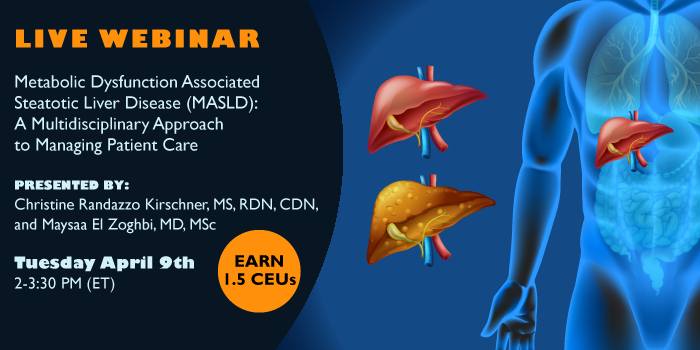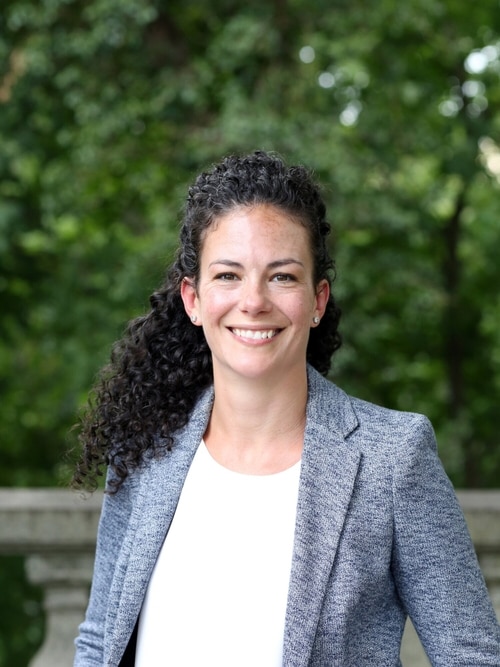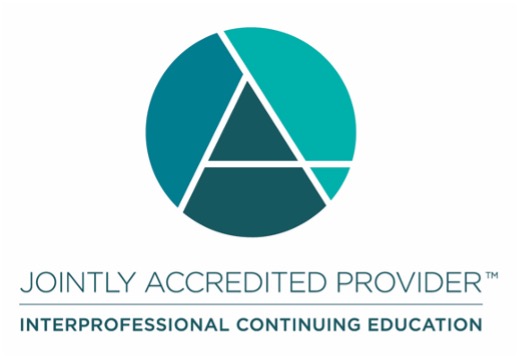Webinar: Metabolic Dysfunction Associated Steatotic Liver Disease (MASLD): A Multidisciplinary Approach to Managing Patient Care

Metabolic dysfunction-associated steatotic liver disease, or MASLD (formerly known as NAFLD), can be a silent disease with very mild symptoms or even no symptoms at all.1 Patients are sometimes made aware they have MASLD when testing for unrelated conditions points to a liver problem. This contributes to MASLD being increasingly common around the world, especially in Western countries.2 With an estimated prevalence of 25-30% in the United States, MASLD has been recognized as a major health burden and is closely linked to metabolic abnormalities like insulin resistance, dyslipidemia, central obesity, and hypertension.3
Certain health conditions, diseases, digestive system disruptions, and an unhealthy diet can increase a patient’s susceptibility to developing MASLD. However, research has shown that weight loss and dietary changes can help treat and prevent MASLD, therefore, it’s crucial that the health care team managing patients with MASLD keep abreast of the latest interventions and recommendations for the disease’s treatment and prevention.
On Tuesday, April 9, 2024, from 2-3:30 p.m. ET, join Christine Randazzo Kirschner, MS, RDN, CDN, and Maysaa El Zoghbi, MD, MSc, for an interactive, interprofessional webinar that will provide an overview of MASLD and discuss dietary, lifestyle, and physical activity modifications currently used as first line treatments for MASLD. Christine and Dr. El Zoghbi will also describe how an interdisciplinary approach provides the best outcomes in reducing liver and cardiovascular morbidity and mortality in patients with MASLD.
Learning Objectives
Upon completion of this activity, participants will be able to:
- Describe the epidemiology, pathogenesis, and clinical manifestation of Metabolic Dysfunction-Associated Steatotic Liver Disease (MASLD, formerly NAFLD).
- Explain the diagnostic process for MASLD.
- Counsel patients and clients on evidence-based medical nutrition therapy and lifestyle interventions for MASLD.
- Implement interprofessional strategies to provide the best approach to care for patients with MASLD.
1. Rivera, W. (2022, May 23). Nonalcoholic Steatohepatitis (NASH): Symptoms & complications. American Liver Foundation. https://liverfoundation.org/liver-diseases/fatty-liver-disease/nonalcoholic-steatohepatitis-nash/
2. Definition & facts of NAFLD & NASH. (2022, August 30). National Institute of Diabetes and Digestive and Kidney Diseases; NIDDK - National Institute of Diabetes and Digestive and Kidney Diseases.https://www.niddk.nih.gov/health-information/liver-disease/nafld-nash/definition-facts
3. Rinella ME, et. al. AASLD Practice Guidance on the clinical assessment and management of nonalcoholic fatty liver disease. Hepatology. 2023 May 1;77(5):1797-1835.doi: 10.1097/HEP.0000000000000323. Epub 2023 Mar 17. PMID: 36727674.https://journals.lww.com/hep/fulltext/2023/05000/aasld_practice_guidance_on_the_clinical_assessment.31.aspx
Additional Information
 Christine Randazzo Kirschner, MS, RDN, CDN, is a GI-expert dietitian and co-founder of Amenta Nutrition, a virtual nutrition counseling and consulting firm that specializes in Digestive Health. Although she helps people with a variety of health concerns, she specializes in disorders of the gut-brain interactions (DGBIs), including Irritable Bowel Syndrome (IBS), chronic constipation and diarrhea, and other gastrointestinal diseases like Small Intestinal Bacterial Overgrowth (SIBO), Celiac disease, and Metabolic Dysfunction-Associated Steatotic Liver Disease (MASLD, formerly NAFLD). Christine holds a Bachelors in Italian and a Master of Science in Nutrition from Hunter College. She is a committee member of the Dietitians in Gluten and Gastrointestinal Disorders (DIGID) DPG and a member of the Dietitians in Medical Nutrition Therapy DPG. She is also a Monash University low-FODMAP diet-trained dietitian and an active member of the Academy of Nutrition and Dietetics. Christine loves empowering her patients by providing accurate nutrition information so they are confident about future food choices and not held back by fear or uncertainty.
Christine Randazzo Kirschner, MS, RDN, CDN, is a GI-expert dietitian and co-founder of Amenta Nutrition, a virtual nutrition counseling and consulting firm that specializes in Digestive Health. Although she helps people with a variety of health concerns, she specializes in disorders of the gut-brain interactions (DGBIs), including Irritable Bowel Syndrome (IBS), chronic constipation and diarrhea, and other gastrointestinal diseases like Small Intestinal Bacterial Overgrowth (SIBO), Celiac disease, and Metabolic Dysfunction-Associated Steatotic Liver Disease (MASLD, formerly NAFLD). Christine holds a Bachelors in Italian and a Master of Science in Nutrition from Hunter College. She is a committee member of the Dietitians in Gluten and Gastrointestinal Disorders (DIGID) DPG and a member of the Dietitians in Medical Nutrition Therapy DPG. She is also a Monash University low-FODMAP diet-trained dietitian and an active member of the Academy of Nutrition and Dietetics. Christine loves empowering her patients by providing accurate nutrition information so they are confident about future food choices and not held back by fear or uncertainty.  Maysaa El Zoghbi, MD, MSc, completed her master's in clinical research and gastroenterology fellowship in 2017 at Case Western University and Cleveland Medical Center. Currently, she holds the position of Assistant Clinical Professor at NYU Grossman School of Medicine and serves as the Associate Director of the Gastroenterology Fellowship at NYU Langone Medical Center in Brooklyn.
Maysaa El Zoghbi, MD, MSc, completed her master's in clinical research and gastroenterology fellowship in 2017 at Case Western University and Cleveland Medical Center. Currently, she holds the position of Assistant Clinical Professor at NYU Grossman School of Medicine and serves as the Associate Director of the Gastroenterology Fellowship at NYU Langone Medical Center in Brooklyn.
The faculty and planners for this educational activity have no relevant financial relationship(s) with ineligible companies to disclose.
An “ineligible company” includes any entity whose primary business is producing, marketing, selling, re-selling, or distributing healthcare products used by or on patients.
 In support of improving patient care, Great Valley Publishing Company is jointly accredited by the Accreditation Council for Continuing Medical Education (ACCME), the Accreditation Council for Pharmacy Education (ACPE), and the American Nurses Credentialing Center (ANCC), to provide continuing education for the healthcare team.
In support of improving patient care, Great Valley Publishing Company is jointly accredited by the Accreditation Council for Continuing Medical Education (ACCME), the Accreditation Council for Pharmacy Education (ACPE), and the American Nurses Credentialing Center (ANCC), to provide continuing education for the healthcare team.
This activity will also award credit for dietetics (CDR CPEU).
Physicians: This activity is designated for 1.5 AMA PRA Category 1 Credit™
Dietitians: This activity will also award 1.5 CDR CPEU credit for dietetics. Completion of this RD/DTR profession specific or IPCE activity awards CPUs (One IPCE credit = One CPEU). If the activity is dietetics-related but not targeted to RDs or DTRs, CPUs may be claimed which are commensurate with participation in contact hours (One 60-minute hour = 1 CPEU).
RDs and DTRs are to select activity type 102 in their Activity Log. Sphere and Competency selection is at the learner's discretion.
Interprofessional: This activity was planned by and for the healthcare team, and learners will receive 1.5 IPCE credits for learning and change.
Available Credit
- 1.50 Interprofessional Continuing Education (IPCE)This activity was planned by and for the healthcare team, and learners will receive Interprofessional Continuing Education (IPCE) credits for learning and change.
Price
Required Hardware/software
Ensure your browser's cookies are enabled in order for the video software to function properly.

 Facebook
Facebook X
X LinkedIn
LinkedIn Forward
Forward